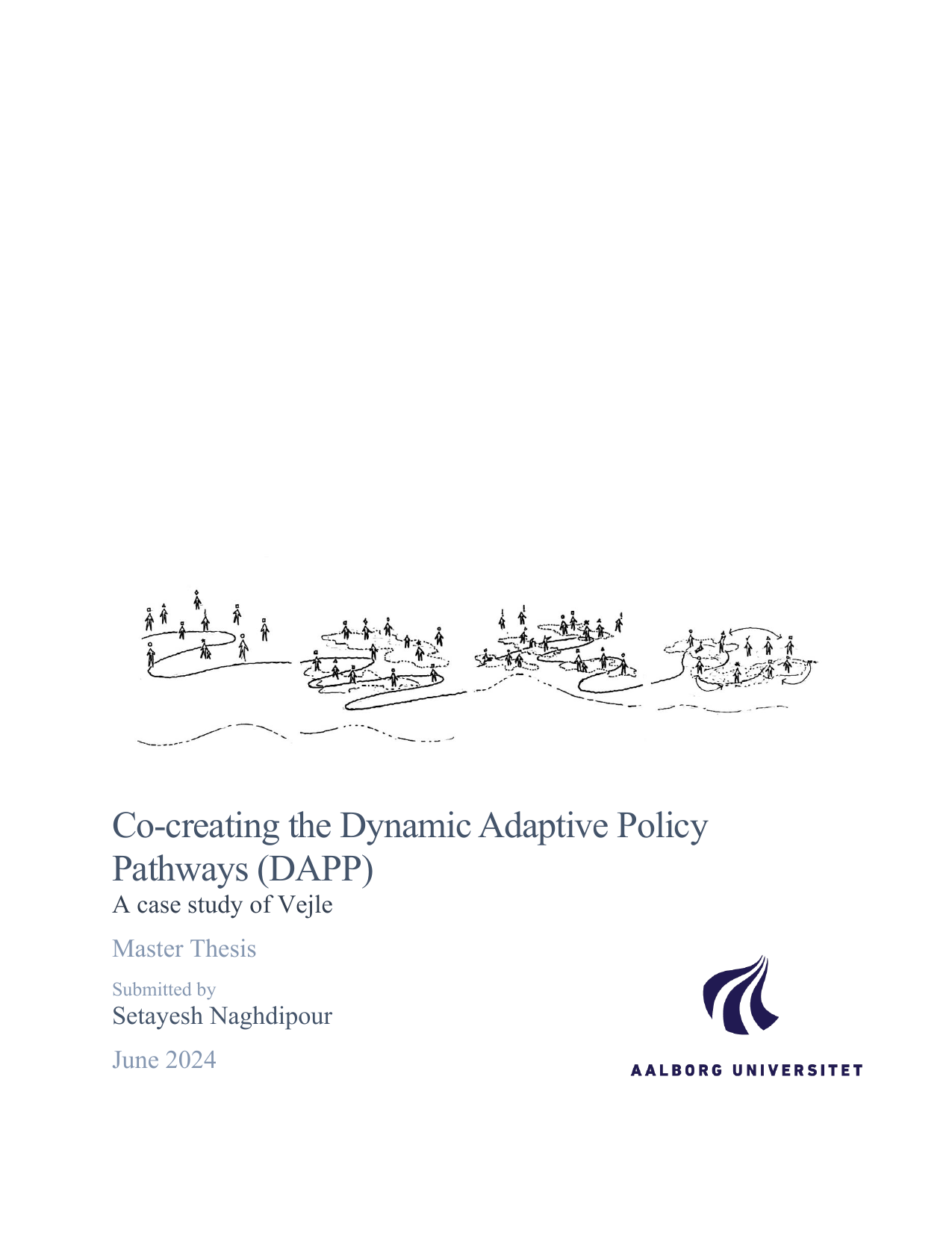
Co-creating the Dynamic Adaptive Policy Pathways (DAPP)- A case study of Vejle
Author
Term
4. Term
Publication year
2024
Submitted on
2024-06-07
Pages
88
Abstract
Climate change has increased the intensity and frequency of extreme events, adversely affecting human settlements. Climate Change Adaptation (CCA) is crucial to address these rising risks. However, barriers like uncertainty can hinder effective action. Approaches like the Dynamic Adaptive Policy Pathways (DAPP) offer flexible, long-term planning steps to avoid lock-in situations. Additionally, participatory processes and integrating diverse knowledge sources are essential for effective CCA, requiring approaches that foster collaboration among various actors. This research investigates the roles of co-creation in the Multi-Criteria Analysis (MCA) step of the DAPP approach. On this basis, the MCA step of the DAPP is developed based on the dimensions of co-creation, stages, stakeholders, and tools. Applying the developed DAPP process to the case of Vejle in managing the risk of rising sea levels shows that co-creation in dynamic planning not only might improve stakeholder relations and networks but also can enrich the DAPP process with new ideas and experiences, leading to more robust and adaptive policy pathways. However, it is essential to discuss the applicability of the developed DAPP process to other contexts and hazards.
Documents
